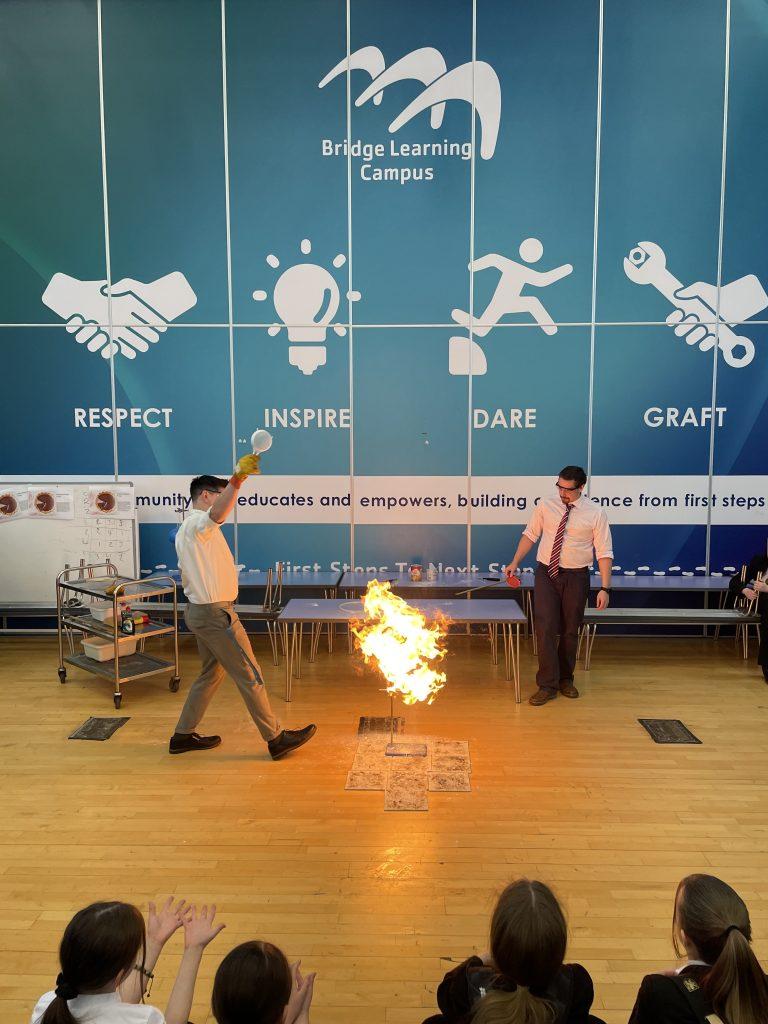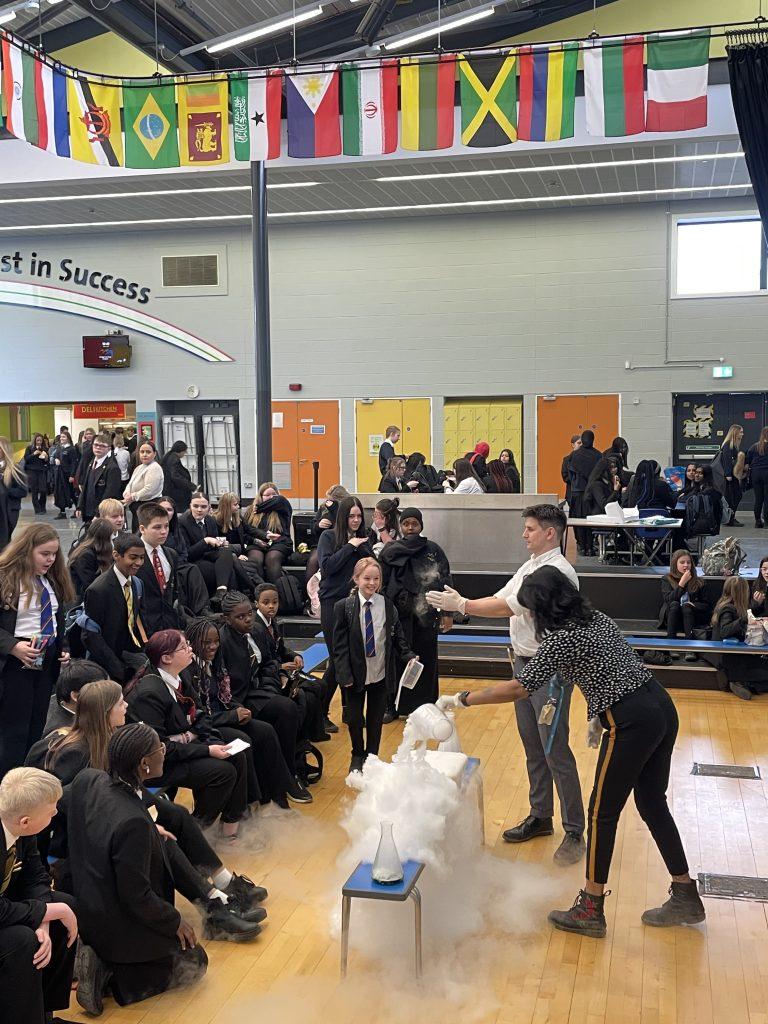Intent
At Bridge Learning Campus, our science curriculum is built around deepening curiosity and developing scientific confidence. Rooted in the core scientific concepts, it reflects our BUILD ambition—to construct firm knowledge foundations in Biology, Chemistry, and Physics—and our drive to INSPIRE inquisitive, lifelong learners.
We strive to develop:
- Respect for scientific rigour through clear, accurate terminology and enquiry.
- Bold thinkers who DARE to question, experiment, and challenge assumptions.
- Resilient learners who GRAFT—investing consistent effort in mastering concepts from KS3 through to GCSE.
- Independent scientists who are EMPOWERED to apply science in real‑world, global contexts.
We want our pupils to leave Bridge Learning Campus as confident, capable young scientists—equipped with knowledge, practical skills, and the confidence to succeed in further study, employment, and life beyond school.
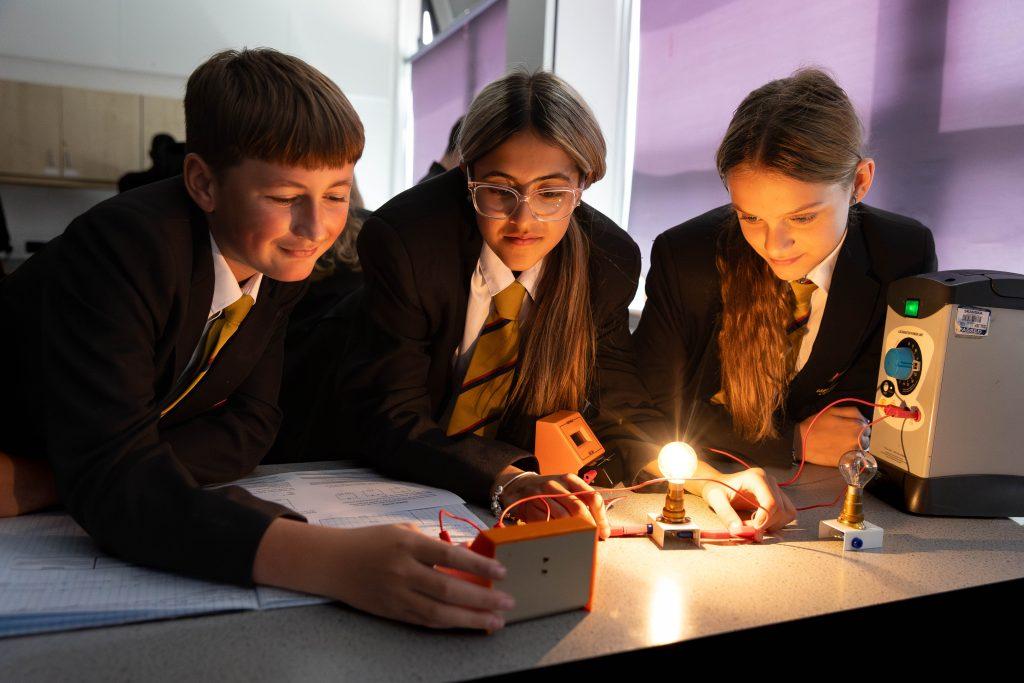
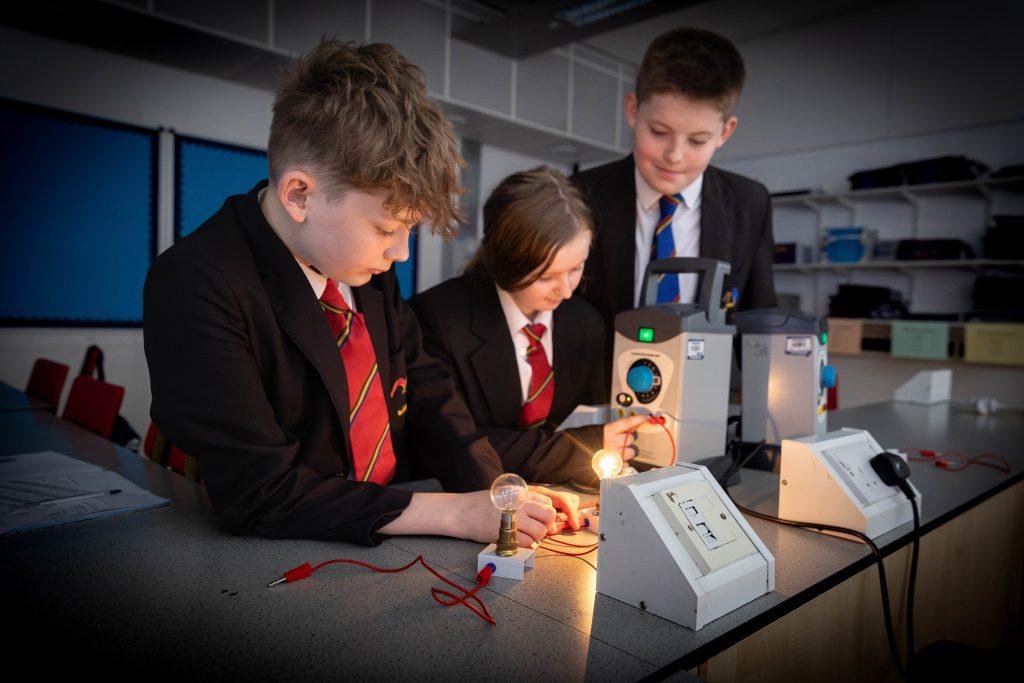
Implementation
We ensure high standards of teaching and learning in science through a curriculum that is structured, coherent, and sequenced to develop secure understanding over time.
Curriculum Structure
Our curriculum is built on a spiral model that revisits core concepts with increasing depth across the key stages, allowing pupils to make links and reinforce learning. In Key Stage 3, pupils study a broad range of foundational topics across Biology, Chemistry and Physics. These underpin the more specialised study of Combined Science (AQA Trilogy) in Key Stage 4.
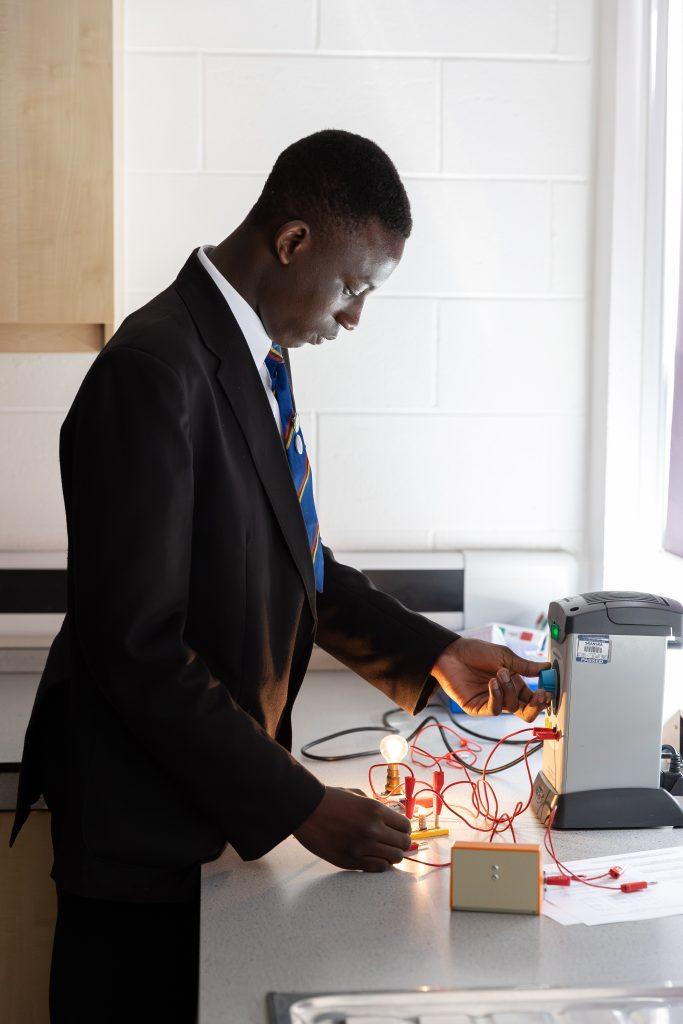
Scientific enquiry and working scientifically skills are taught explicitly and interwoven across topics. Pupils develop their ability to plan investigations, record results, analyse data and evaluate outcomes with increasing sophistication.
All required practicals from the AQA Trilogy specification are taught with precision and purpose, ensuring that pupils are confident in both their understanding and their experimental skills.
Teaching and Learning Approaches
Our lessons are carefully designed to blend direct instruction with opportunities for discovery, discussion, and application. Key features include:
- Clear explanations, modelling and scaffolding to support deep understanding.
- Regular retrieval practice and low-stakes quizzing to embed key knowledge in long-term memory.
- Use of practical work to bring science to life and develop essential investigative skills.
- High-quality models to support comprehension and accessibility.
- Emphasis on precise scientific vocabulary to support pupils in articulating their thinking clearly.
Assessment is used continuously to check understanding, address misconceptions, and adapt teaching responsively. Feedback is timely, targeted, and focused on helping pupils make meaningful improvements to their work.
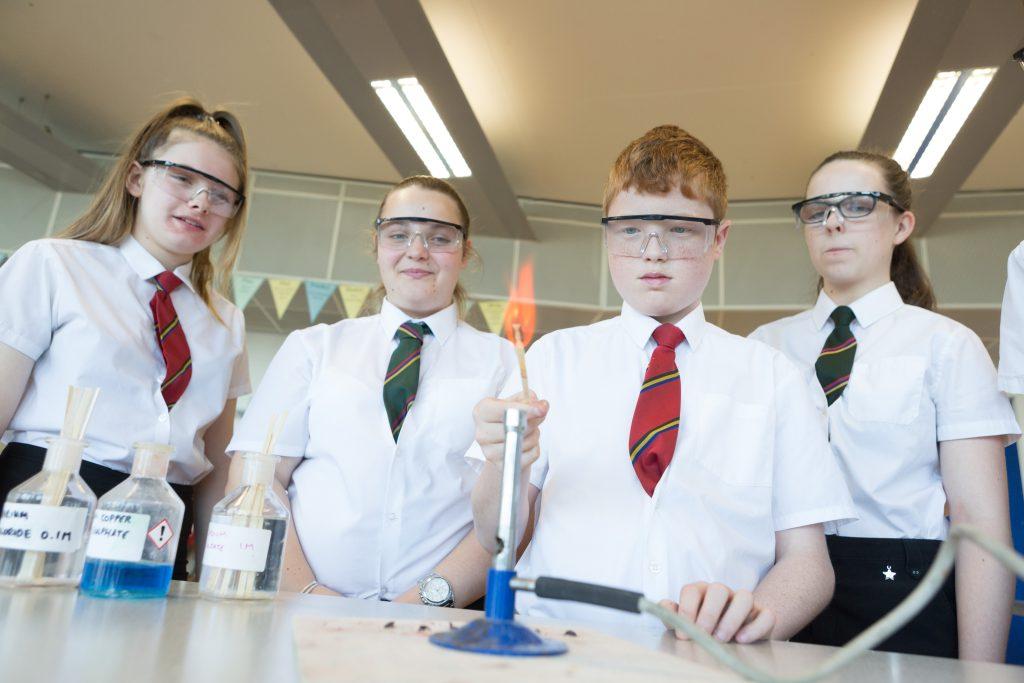
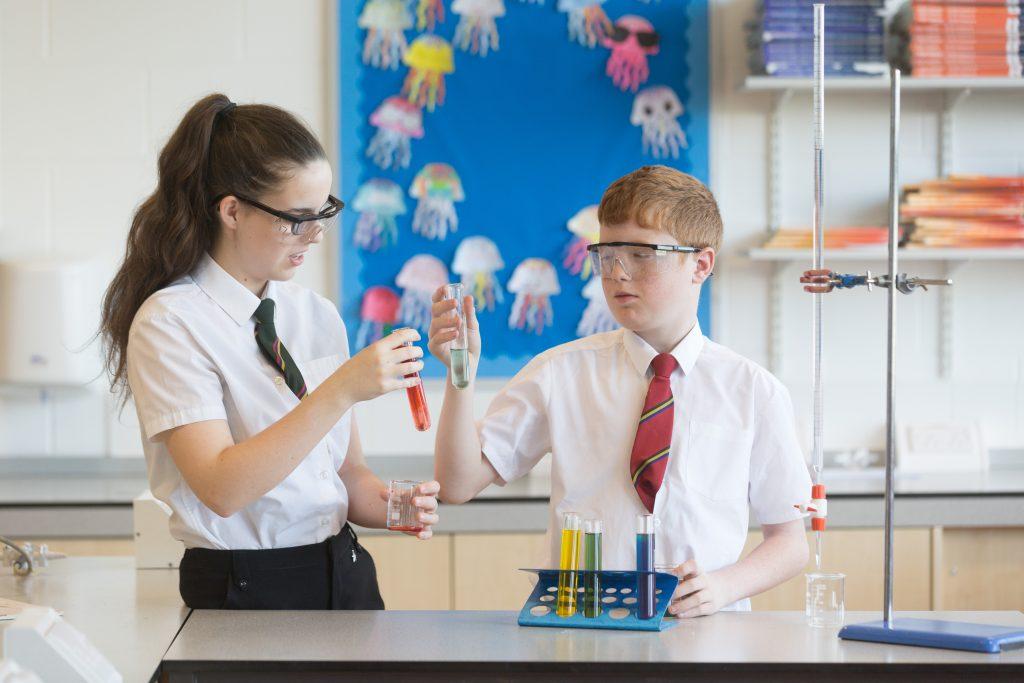
Support and Challenge
We believe every pupil can succeed in science with the right support and challenge. Teaching is adaptive and inclusive, with scaffolding and intervention where needed. At the same time, we stretch and challenge all pupils—encouraging them to:
- Think deeply and DARE to explore challenging concepts.
- Work collaboratively and RESPECT different ideas and perspectives.
- Apply knowledge in unfamiliar contexts, demonstrating their ability to GRAFT and problem-solve.
We create a culture of high expectations where resilience, curiosity and independent thinking are nurtured and celebrated.
Enrichment and Real-World Connections
Science is brought to life through a wide range of enrichment activities and authentic contexts that connect classroom learning to the wider world. These include:
- Visits to science centres, museums and local STEM employers.
- STEM clubs, national competitions and events such as the First LEGO league and British Science Week.
- Guest speakers from universities and industry.
- Opportunities to explore ethical and environmental issues linked to global science challenges.
These experiences help pupils to BUILD confidence, INSPIRE ambition, and EMPOWER them to see themselves in future scientific careers.
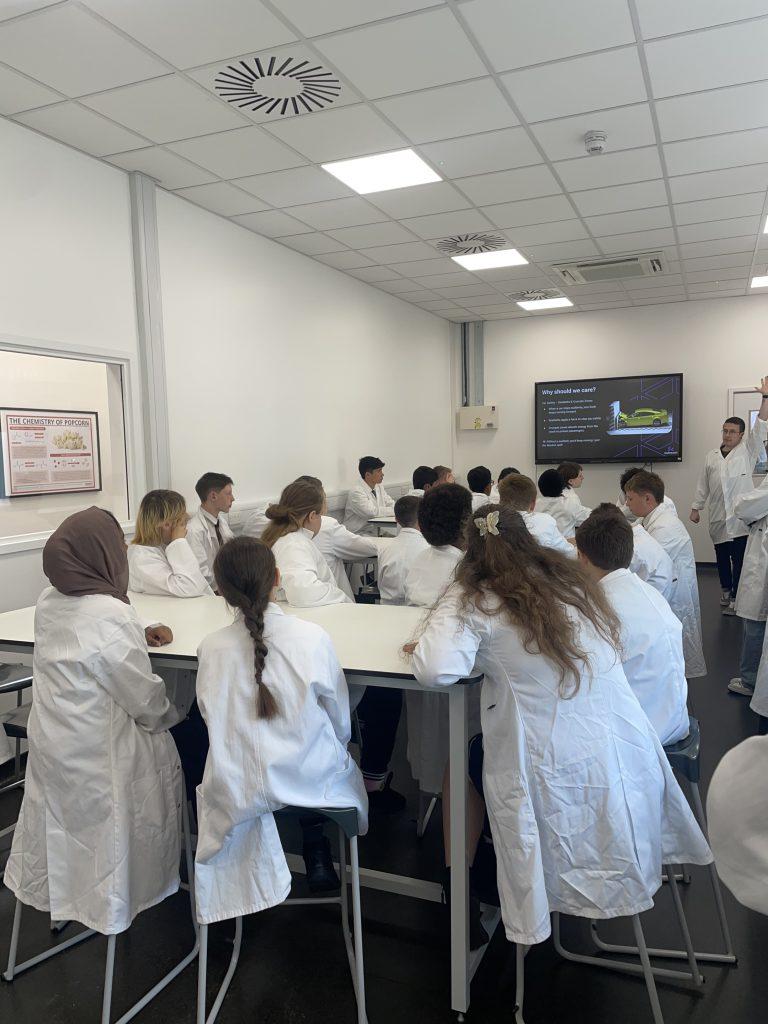
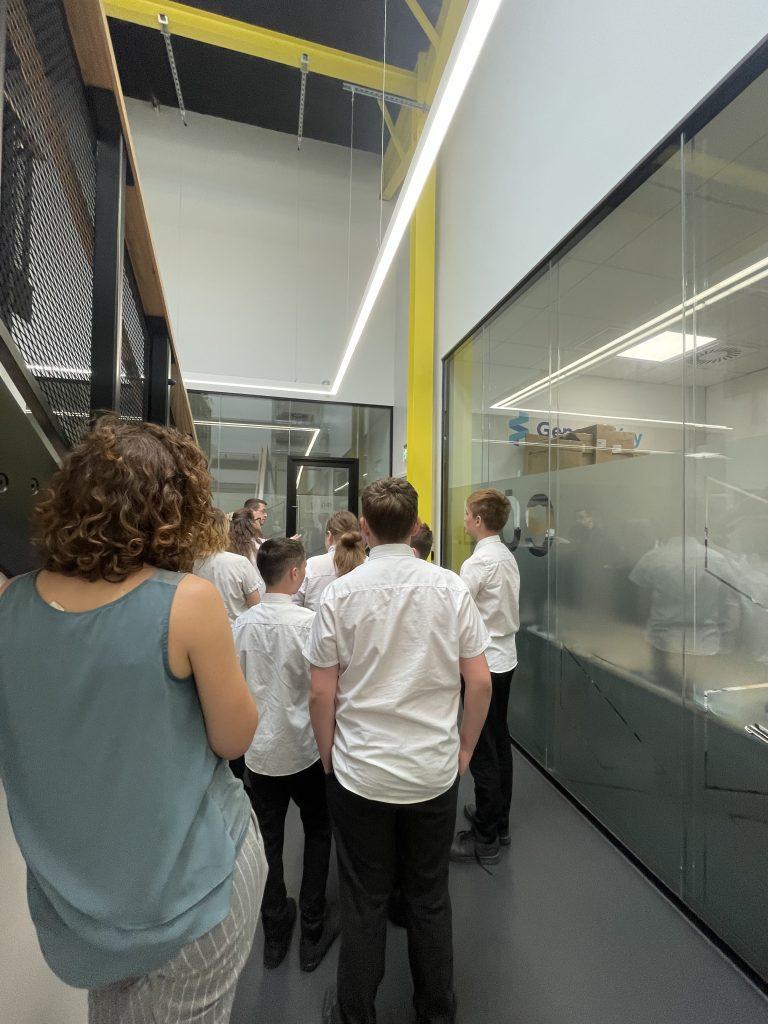
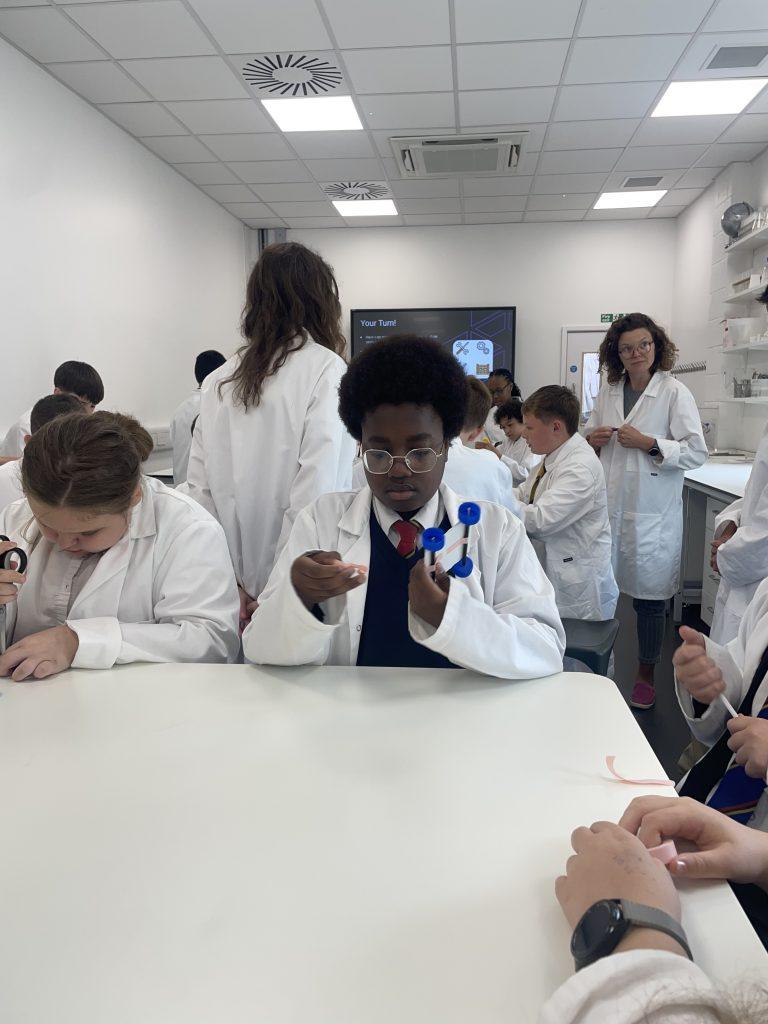
Impact
We measure the impact of our science curriculum through pupils’ progress, outcomes, and attitudes towards the subject.
We know our curriculum is effective when pupils:
- Demonstrate secure knowledge of scientific concepts and vocabulary across all disciplines.
- Apply their understanding to practical investigations, demonstrating accuracy, safety, and analytical thinking.
- Approach unfamiliar problems with curiosity and confidence—DARE to hypothesise, GRAFT through challenges, and evaluate evidence critically.
- Communicate scientific ideas clearly, using appropriate terminology and reasoning.
- Make strong progress from their starting points, as evidenced in assessments, practical work and external qualifications.
- Leave school as scientifically literate citizens who can engage with science-related issues and feel EMPOWERED to make informed decisions about their futures.
We evaluate the effectiveness of our curriculum through regular data analysis, work scrutiny, lesson observations and pupil voice. This ensures that our science curriculum remains ambitious, inclusive, and impactful for all learners.
